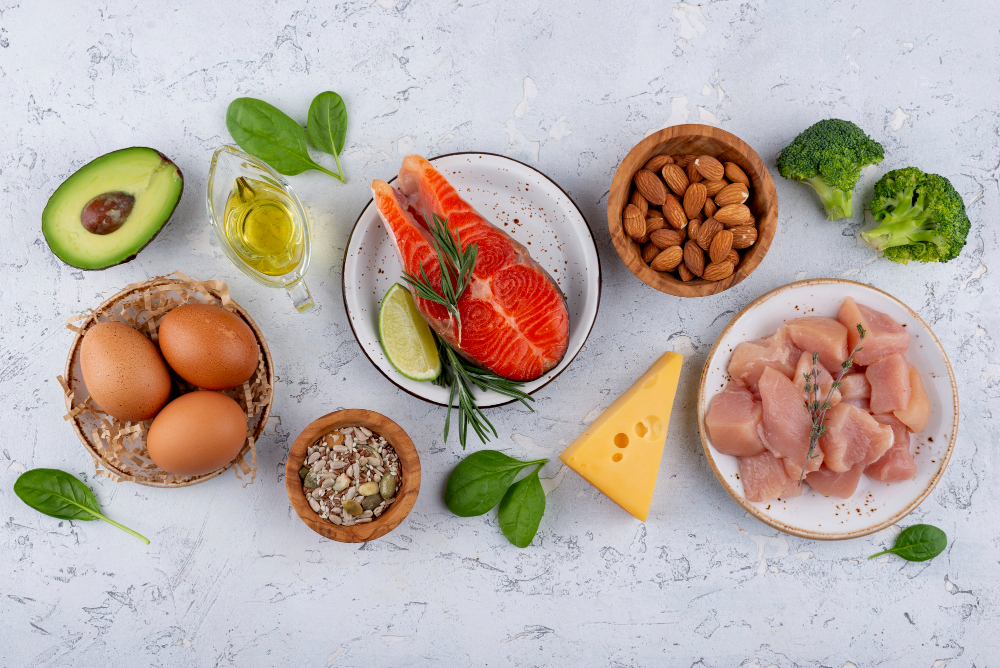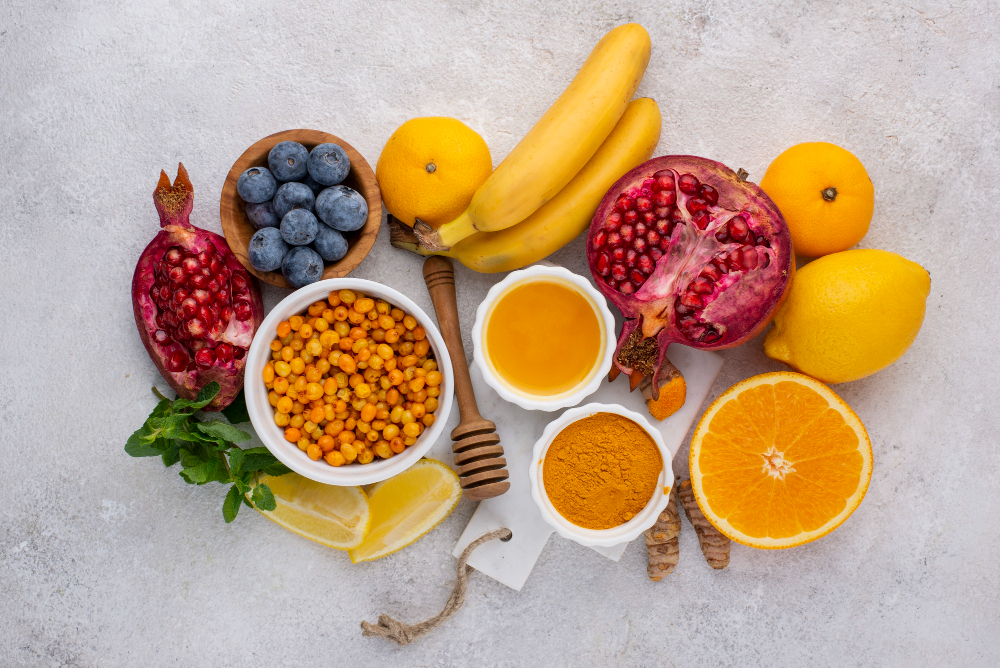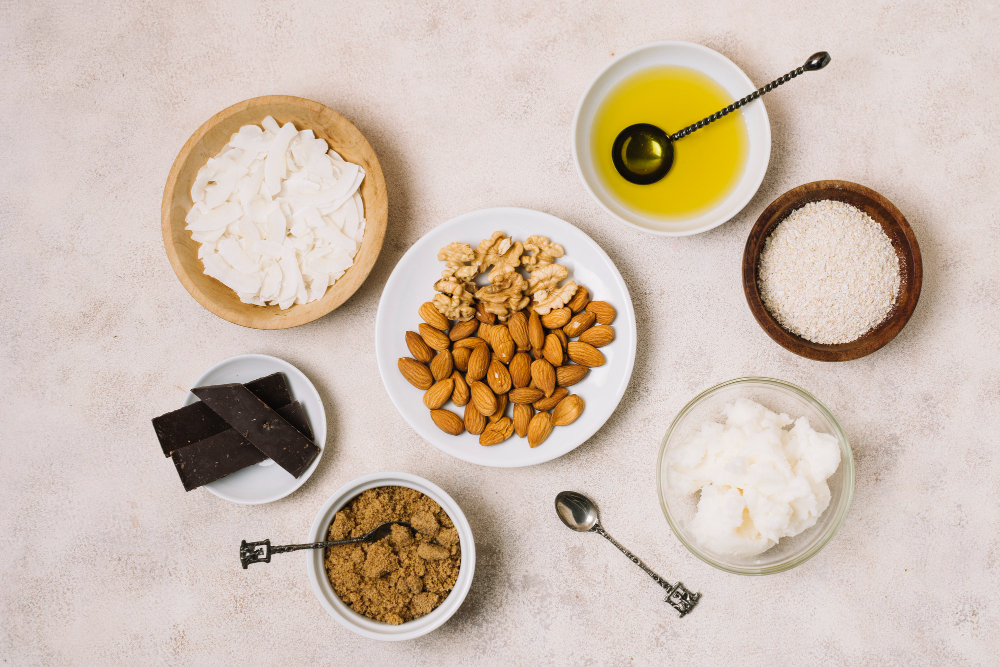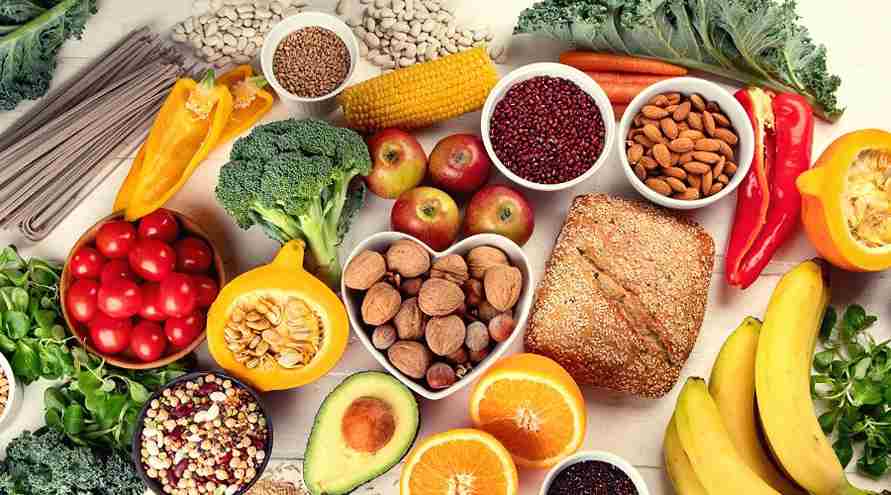Dietitian’s POV: What to Eat for Better Recovery
Recovering from illness, surgery, or even prolonged fatigue requires the body to repair tissues, fight inflammation, and rebuild strength. Food plays a therapeutic role, providing the right balance of energy, protein, vitamins, and minerals that support healing. Here are key nutrition strategies recommended by our dietitians for a smoother and faster recovery:
1. Prioritize Protein for Tissue Repair
Protein is the building block of muscles, skin, and immune cells. During recovery, protein needs are higher to repair tissues and prevent muscle loss.
- Good sources: All pulses-Moong dal, masoor dal, sprouts, soy products, paneer, curd, milk, eggs, chicken, fish.
- Tip: Include a protein source at every meal — e.g., dal with rice, paneer in roti rolls, or curd with fruits.
2. Boost Immunity with Antioxidant-Rich Foods
Illness often weakens immunity, so foods rich in vitamins A, C, and E help reduce oxidative stress and speed up healing.
- Good sources: Amla, guava, citrus fruits (orange, lemon), papaya, spinach, carrots, pumpkin, almonds, sunflower seeds.
- Tip: Add a fruit as a midmeal snack or raw salad with every meal for a steady vitamin supply.
3. Choose Energy-Dense, Easily Digestible Foods
Recovery demands extra energy but heavy or greasy foods can cause discomfort.
- Good sources: Khichdi, daliya (broken wheat), boiled sweet potatoes, poha, upma, vegetable soups, rice with dal and ghee in moderation.
- Tip: Eat small, frequent meals rather than large ones to maintain energy without overloading digestion.
4. Stay Hydrated for Healing
Fluids help flush toxins, maintain circulation, and keep tissues hydrated.
- Good sources: Warm water, lemon water, coconut water, clear soups, herbal teas (ginger, tulsi), thin buttermilk.
- Tip: Avoid excess caffeine and sugary drinks which may dehydrate or slow down the recovery.
5. Support Bone & Muscle Strength with Calcium and Vitamin D
For recovery from surgery, fractures, or long illness, bone and muscle support is essential.
- Sources of calcium: Milk, curd, paneer, ragi, sesame seeds, almonds.
- Vitamin D: Strengthens bones, and immune systems.Sunlight exposure is the best natural source; fortified milk can help too.
- Magnesium: Relaxing to muscle and nerve protecting.-spinach, pumpkin seeds
- Zinc: The zinc helps in healing the wounds- chickpeas, pulses,sprouts,fermented soy. Soaking legumes and grains before cooking can improve zinc absorption.
6. Reduce Inflammation with Healthy Fats
Omega-3 fatty acids and good-quality fats help calm inflammation and aid healing.
- Good sources: Flaxseeds, walnuts, chia seeds,avocado, olive oil, canola oil, ground nut oil, mustard oil, small fish (if non-veg).
- Tip: Use moderate amounts — 3-4 tsp oil daily.
7. Iron and B Vitamins for Energy Restoration
After blood loss, fatigue, or weakness, iron and B vitamins help rebuild red blood cells and energy.
- Good sources of iron: Garden cress seeds (halim), jaggery, dates, spinach, rajma, kala chana.
- B vitamins: Whole grains, dals, nuts, milk, eggs.
- Tip: Combine iron-rich foods with vitamin C (e.g., spinach with lemon juice, lemon water with veg. poha) for better absorption.
8. Probiotics for Gut Health
Antibiotics or illness may disturb gut balance. Probiotics restore digestion and immunity
- Sources: Curd, buttermilk, homemade pickles [oilfree/less oil], fermented foods like idli/dosa batter.
9. Avoid Foods That Delay Recovery
- Deep-fried, spicy, or heavily processed foods can cause inflammation or slow digestion.
- Excess sugar or refined snacks may reduce immunity and energy stability.
Sample menu for the Recovery
- Early morning: light tea+ biscuit / coconut water
- Breakfast: Vegetable upma /poha with curd /chach / milk
- Mid-morning: seasonal fruit/ soaked almonds / soup
- Lunch: Dal khichdi / (dal+ rice + roti) + sabzi + curd + salad
- Evening snack: fruit or Boiled sweet potato + herbal tea /soup
- Dinner: dal + dalia/ Phulka with paneer curry + carrot-beet salad + curd
- Bedtime: Warm turmeric milk for healing and restful sleep [ optional]
✨ Key Takeaway:
Recovery nutrition is not about eating more, but about eating right.
Balanced meals with protein, antioxidants, fluids, and healing nutrients ensure the body regains energy, repairs tissues, and returns to full strength smoothly.



